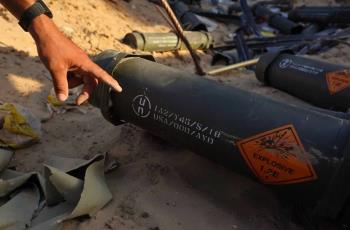Alwaght- Nine years after the start of the Grand Ethiopian Renaissance Dam (GERD) on the Nile, recent weeks observed rejuvenated tensions between Ethiopia and Egypt which opposes the project.
In reaction to the Ethiopian authorities’ insistence that they will not postpone filling the reservoir, President Abdel Fatah el-Sisi of Egypt held an emergency meeting with senior military officials, telling them to be at the highest level of combat readiness. On May 8, the Egyptian Foreign Minister Sameh Shoukry sent a letter to the United Nations Security Council members, condemning the Ethiopian behavior and calling for a restart of the negotiations with Addis Ababa with the mediation of other countries.
So, it seems that the dispute has just upgraded to a newer and more serious stage. But what is the root cause of the recent tensions? Will the project take the two countries to a military confrontation or the dispute will remain political?
The root of the dispute between Cairo and Addis Ababa
Since 2011, Ethiopia took steps to double its capacity for hydroelectric power production by initiating the DERG project, known as Nahda Dam in Egypt. The dam is directly linked to the African country’s energy security. Currently, 60 percent of the population in Ethiopia have no access to power. The dam poses a threat to the Egyptian energy security and with less degree to Sudan’s.
But the initial agreements, like that of 2015, suggest that Cairo agreed with building and filling the dam, though conditionally. In fact, Egypt had considerations mainly regarding the time of filling the reservoir.
Cairo believes that the dam should be filled within a 7-year timeframe but the Ethiopian officials insist that there was no reason for a delay, adding that they will start to fill the reservoir experimentally since July and will fill it within four years.
This insistence by Addis Ababa, against the tripartite agreement of 2015 of the two countries along with Sudan, is the main root of the renewed dispute between the two African states. Another reason is Ethiopia’s rejection to sign an agreement in March brokered by the US and the International Monetary Fund (IMF) following tripartite negotiations. Ethiopia refused to ink the deal despite the Egyptian signature. This sparked yet a new wave of the dispute.
Cairo options and the possibility of a military confrontation
Generally, Cairo has two paths to put an end to the dispute surrounding the dam. One is diplomatic and based on negotiations to find a political settlement and the other is military.
In 2013, Egypt said that it seeks military solution to force-stop construction of the dam. Its plan, it said, included bombing the huge structure to force Ethiopia to end the construction. It announced at the time that this was not a certain settlement to the crisis and was one among several options, however. But the 2015 agreements showed that Egypt accepted construction of the dam and no longer sought its destruction.
When the US-mediated three-party negotiations failed, Egypt once again brought back the military action option on the table to settle the dispute. As Ethiopia says it is filling the reservoir in July and will end the project in four years, the military option will more than ever rise in the Egyptian mind.
What strengthens the Egyptian military option is that if the filling process starts, Cairo has less than four years for military action. If the dam is bombed after its reservoir is filled, its huge water reserves could threaten Egypt and other countries along the Nile.
Despite the considerable Egyptian military upper hand over Ethiopia, a couple of factors make the odds of a military action slim:
1. Egypt’s involvement in Libya case: The Libyan case is important for Egypt from a set of aspects and is directly linked to the Egyptian national security. So, it is the top priority for the Cairo policy. Turkey is directly present in Libya and signed gas pacts with the Tripoli-based government of Prime Minister Fayez al-Sarraj that could impact the Egyptian gas reserve in the Eastern Mediterranean. This makes Libya a vital foreign policy issue for Egypt, with all of its focus being on its settlement in the shortest possible time.
2. Huge debts: The accumulated debts of the Egyptian government and the high costs of a military action make it difficult for Cairo to consider the use of military force against Ethiopia. Although any military action will be limited to bombing the dam and Cairo will steer clear of a full-scale war, possible Ethiopian reaction and intervention of third parties especially the Israeli regime that offered substantial help to designing and constructing the project beside the costs of supporting General Haftar of Libya rebellion against Government of National Accord (GNA) in the Libyan capital Tripoli are the factors making a military action difficult for Cairo.
Although Egypt has signaled that it will resort to the military choice if the negotiations run into an impasse, it seems to be still committed to a political solution. The letter by FM Shoukry sends this message. Actually, Cairo is using the military threat to bring back Addis Ababa to the negotiating table.
It can be concluded that Egypt has approved of building and inaugurating the Ethiopian dam and is in dispute with Addis Ababa on the operational aspect of the project. It will not resort to military options as long as the door is open for diplomacy. The increasing debts besides the cost of fighting the coronavirus discourage the Egyptian leaders from taking military action against Ethiopia at least in the short run. The threat of military action is made to make Ethiopia to recalculate and think of a peaceful solution.



























